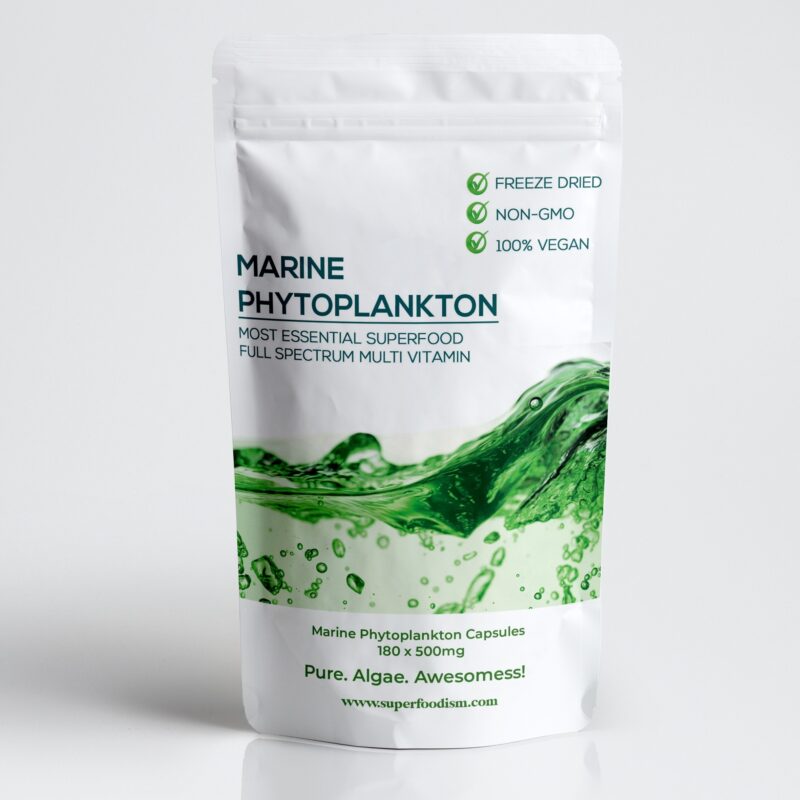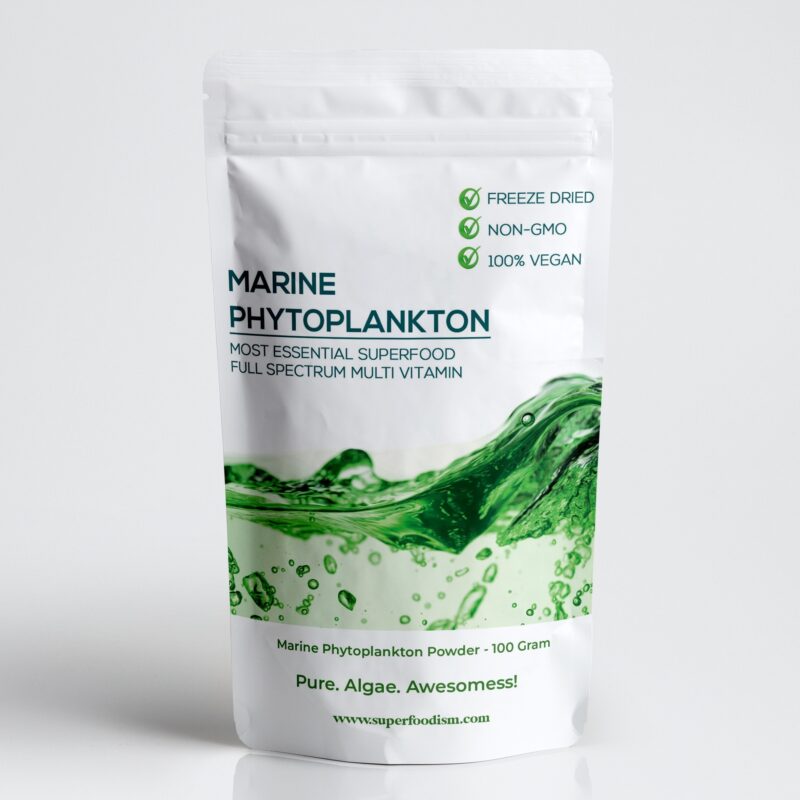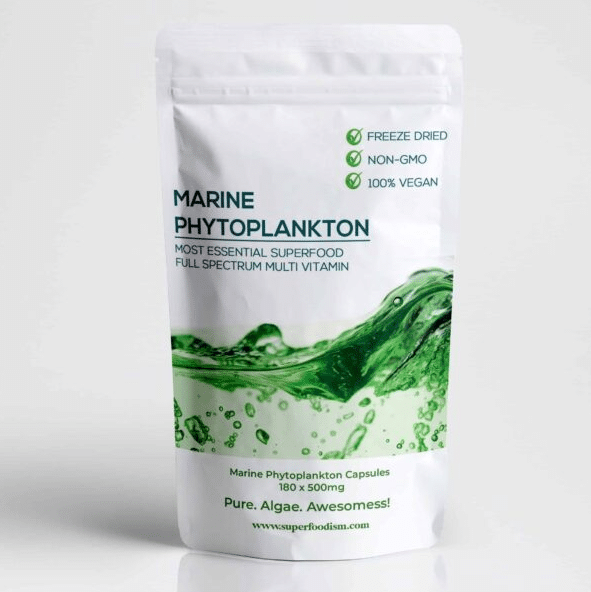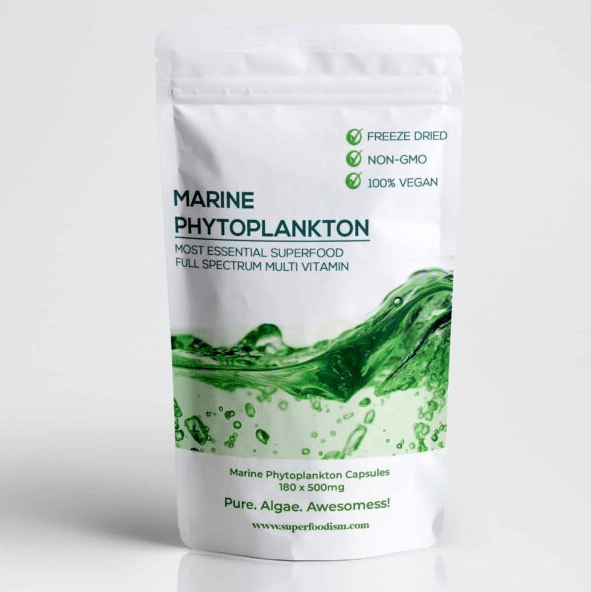The Benefits For Omega 3 Derived From Algae
Good nutrition plays a big role in keeping our brain and emotions healthy. One important nutrient for brain health is Eicosapentaenoic Acid (EPA), a type of omega-3 fatty acid. In this article we looks at how EPA helps improve mood, brain function, and overall mental health, showing why it’s so important for our emotional and cognitive well-being.
The Brain’s Best Friend: EPA and Cognitive Function
EPA, a type of polyunsaturated fatty acid, is known for protecting and supporting brain health. Research shows that EPA helps improve cognitive function by keeping cell membranes healthy, flexible, and efficient at sending signals between brain cells.
EPA also boosts brain-derived neurotrophic factor tor BDNF, a protein essential for the growth and survival of brain cells. Higher BDNF levels are linked to better learning, memory, and overall brain performance. In short, EPA supports better brain function and helps keep your mind sharp.
EPA and Mood Regulation
EPA not only supports brain function but also plays a key role in regulating mood. Research shows a strong link between omega-3 fatty acids, especially EPA, and mental health. EPA helps control the production of important neurotransmitters like serotonin and dopamine, which are crucial for maintaining a stable mood.
People with higher levels of EPA are less likely to experience depression and anxiety. Its anti-inflammatory effects also help, as inflammation is often connected to mood disorders. By reducing inflammation, EPA helps the brain work better and supports emotional balance and resilience.
EPA and Neuroinflammation
Neuroinflammation, or inflammation in the brain, is a major factor in many neurological disorders. EPA’s strong anti-inflammatory properties make it a valuable tool in fighting this issue. Chronic inflammation is linked to conditions like Alzheimer’s and Parkinson’s, and EPA’s ability to lower inflammation may help prevent or reduce the impact of these diseases.
EPA also helps the body produce anti-inflammatory molecules like resolvins and protectins, adding to its protective effects on the brain. By keeping inflammation in check, EPA helps protect the brain from damage and supports healthy cognitive function.

EPA and Neuroplasticity
Neuroplasticity, the brain’s ability to adapt and form new connections, is essential for learning, memory, and mental flexibility. EPA supports neuroplasticity by encouraging the growth and branching of dendrites, the parts of nerve cells that transmit signals. This helps the brain stay adaptable and responsive.
As people age, cognitive decline becomes a concern. EPA’s protective effects on the brain make it a valuable nutrient for preventing or slowing down cognitive decline. Studies show that higher levels of omega-3s, including EPA, are linked to a lower risk of cognitive impairment and dementia in older adults. By maintaining the health and structure of brain cells, EPA helps protect against age-related mental decline.
Practical Strategies for Gettting EPA into Your Diet
EPA offers many benefits for brain health, making omega-3-rich foods a smart addition to your diet. In principle, fatty fish like salmon, mackerel, and sardines are great sources of EPA. However, here in the Netherlands it’s recommended to limit fish consumption to three times a week due to contamination concerns. Thereby limiting the amount of omega-3 you can get from your diet!
As an alternative, high-quality algal oils and marine phytoplankton provide a clean and sustainable source of omega-3s. These options ensure you get enough EPA without worrying about pollution or contributing to overfishing.
Conclusion
EPA plays a key role in the health of our brain, offering support for cognitive function, mood balance, and overall mental well-being. From improving neuroplasticity to reducing inflammation in the brain, EPA has proven to be an essential nutrient for a healthy mind.
As we learn more about how nutrition impacts brain function, EPA provides a natural way to boost cognitive resilience. Including EPA-rich foods in your diet or using supplements (with advice from a healthcare professional) can help maintain a sharp and balanced mind, supporting both cognitive and emotional health.
Sources:











